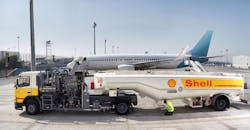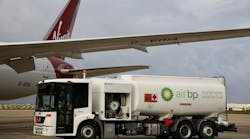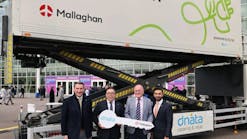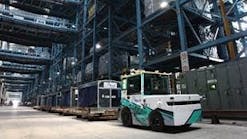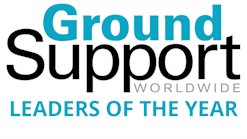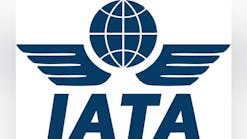If the world is to continue enjoying the benefits of flight, the sector must decarbonize. Pre-COVID-19, aviation produced around 1 billion tonnes of carbon emissions in 2019 – around 3 percent of the world’s annual total.
And while the scale of the challenge is significant, at Shell our view is that the aviation sector can and needs to achieve net-zero emissions by 2050. As such, I was particularly delighted to see ICAO and its member states adopt a net-zero emissions target for 2050 at its assembly last October.
Reaching net-zero will require a global effort, but I see the exact steps looking different in each market and taking place at different moments. This is a feature of the energy transition – it progresses at different paces in different places around the world.
From an aviation perspective, this is particularly visible in Asia Pacific – where the industry is set to be an engine for growth and prosperity in the region, particularly as we look beyond the pandemic.
Despite these forecasts, the region is at an early stage in its use of sustainable aviation fuel (SAF) and other decarbonization solutions. As I look at Asia Pacific today, I believe it’s vital the industry works together to accelerate these efforts, especially the uptake of SAF – the most viable lever for decarbonization, certainly up to 2050.
Decarbonizing Asia Pacific Aviation
The International Air Transport Association (IATA) estimates that Asia Pacific will drive the biggest growth in global passenger numbers in the near-to-medium term, with more than half the total number of new passengers over the next 15 years predicted to come from this market.
To ensure this growth can be delivered in line with the industry’s net-zero ambitions, it will need to be accompanied by a significant increase in the use of decarbonization solutions.
According to forecasts by the Association of Asia Pacific Airlines, by 2050, 40 percent of global SAF demand – expected to be between 450 to 500 million tonnes – will be coming from the region.
But just as in other markets, there are challenges the region must overcome to scale SAF. The financial impact of the pandemic is still visible and will be for some time. Airlines also need to contend with the higher price point of SAF right now. This is where value chain collaboration is so important for making SAF the most viable option it can be for decarbonization.
It is this need for collaboration on SAF that led Shell, American Express Global Business Travel, Accenture and Energy Web Foundation to team up to create Avelia - one of the world’s first blockchain-powered SAF book-and-claim platforms for business travel.
Avelia aims to aggregate corporate demand for SAF under one platform, share the cost of SAF among airlines and corporate travelers to make it more accessible financially, and secure NGO carbon accounting approval so airlines and businesses can use book-and-claim SAF solutions to claim emission reductions.
Thanks to its book-and-claim mechanism, Avelia would decouple SAF use from its geographic supply, making it easier for airlines and corporations to tap into global SAF supplies from wherever they are. This is an attractive proposition for airlines in the region.
More airlines based in Asia are publicly making commitments on the use of SAF to meet net zero emissions targets. This is something we’ve seen ourselves, having recently signed SAF MOUs with Japan Airlines, Korean Airlines and Cebu Pacific.
To deliver on this increase in demand, fuel suppliers and other players in the value chain must work together to supply SAF where needed.
There have been positive movements in the region. The Singapore government launched a set of feasibility studies to identify viable feedstock technology combinations for SAF production. Further progress took place when the Civil Aviation Authority of Singapore announced a value chain collaboration on demand, production and application of alternative fuels.
In September 2022, the Civil Aviation Authority of Singapore’s International Advisory Panel in which Shell is a part of, published a report that put forth 15 practical pathways for how Singapore can decarbonise the aviation sector and become a sustainable air hub.
As set out in its Green Plan 2030, Singapore is taking up the mantel of sustainability leadership, seeking to make it a sustainable tourist destination. As part of that plan, Changi airport will play its part in becoming one of the first movers in the supply and trading of SAF for commercial aviation in the region.
Moving Beyond Production
To accelerate the region’s decarbonization journey, we recognize that beyond the production of SAF, regional supply capabilities must be enhanced. One of the fundamental elements that must be addressed is developing the right infrastructure to ensure SAF can be supplied where airlines and airports need it.
Last year, Shell became the first supplier of SAF to the regional aviation hub of Singapore, helping airlines reduce aviation emissions. We have also completed the upgrading of our facilities in Singapore which enables the blending of neat SAF with jet fuel. A blending facility in the region enables a more efficient operation by moving neat SAF in bulk from production sources to the blending facility and then delivering blended SAF to where it is needed.
Building supply chain capabilities to blend, handle and distribute SAF is critical in enabling more customers across different segments access to SAF, as we saw last year with Shell supplying SAF to Cathay Pacific in Hong Kong International Airport, Japan Airlines and Cebu Pacific in Singapore Changi Airport, and Jet Aviation and Bombardier in Seletar Airport.
Working Across the Value Chain
While steps to increase the use of and improve access to SAF are essential, they must be complemented by significant and coordinated efforts to rapidly scale the production of SAF in the region too.
Today’s commercial SAF production is only a fraction of total jet fuel consumption and SAF remains significantly more expensive than conventional jet fuel. Although new capacity is set to come online over the next five years, considerably more is required to achieve significant reductions in emissions.
At Shell, we recognize the challenges of cost and scalability and are committed to working with wider industry and government to address them. To this end, I’m proud of our ambition to have at least 10 percent of global aviation fuel sales as SAF by 2030.
To deliver on this, we are working with partners as well as investing to create a step change in the volume of SAF available. A key part of this is transforming our existing refinery assets, including in Asia. In 2021, we announced plans for a biofuels facility, pending a final investment decision, at the Shell Energy and Chemicals Park Singapore.
The facility has the ability to produce 550,000 tonnes of low-carbon fuels a year, which means it is set to be one of Asia’s largest biofuels facilities. It will help produce SAF, as well as renewable diesel for road transport and renewable chemicals.
Delivering on the Opportunity to Decarbonize
These are all important pieces of the aviation decarbonization puzzle that we are looking to solve in Asia Pacific – from ensuring the right SAF supply chain infrastructure is in place to looking ahead to producing SAF in the region.
But while individual steps like these are important, it is essential that they are underpinned by collaboration across the aviation value chain. Given how the energy transition is taking place at varying speeds across different regions, collaboration is critical in enabling progress.
There is a real opportunity to decarbonize aviation. And we’re looking forward to working with customers and partners across Asia Pacific and beyond to accelerate aviation’s pathway to net-zero emissions.
Jan Toschka is president of Shell Aviation. With one of the most extensive refueling networks in the world Shell Aviation supplies fuel, lubricants and sustainable solutions in more than 45 countries. Customers range from the world’s largest airlines to private pilots. Toschka has been at Shell for 13 years, leading wholesale, retail, trading, marine and aviation businesses across the globe.
